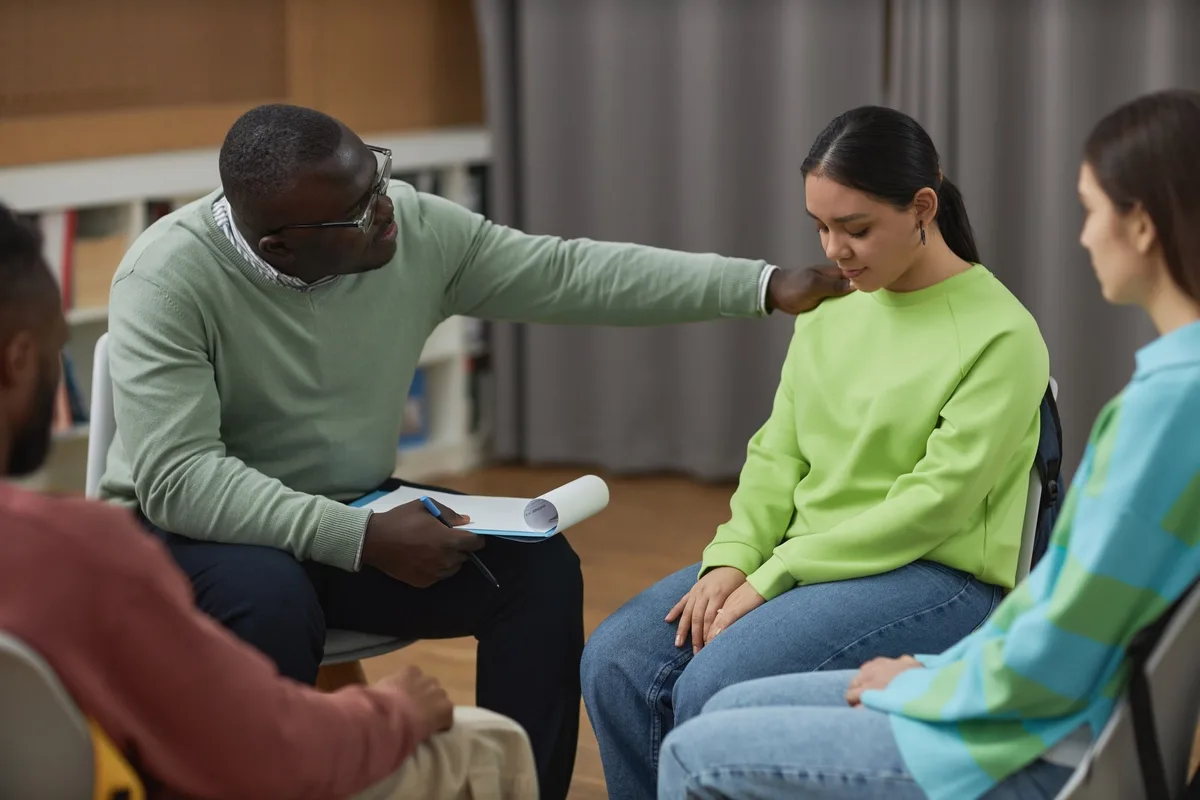24/7 Helpline:
(866) 899-221924/7 Helpline:
(866) 899-2219
Learn more about PTSD Rehab centers in Watonga

Other Insurance Options

Multiplan

Medical Mutual of Ohio

Self-pay options

Amerigroup

Absolute Total Care

ComPsych

Optum

American Behavioral

Coventry Health Care

Health Partners

Excellus

Anthem

Molina Healthcare
Beacon

Regence

GEHA

Optima

United Health Care

Covered California

MHNNet Behavioral Health

Red Rock Behavioral Health Services
Red Rock Behavioral Health Services is a private rehab located in Watonga, Oklahoma. Red Rock Behavi...



YouthCare of Oklahoma
YouthCare of Oklahoma is an outpatient clinic that provides mental health and substance use treatmen...







































































